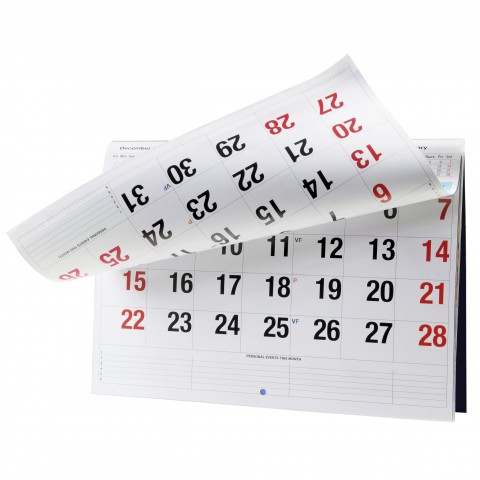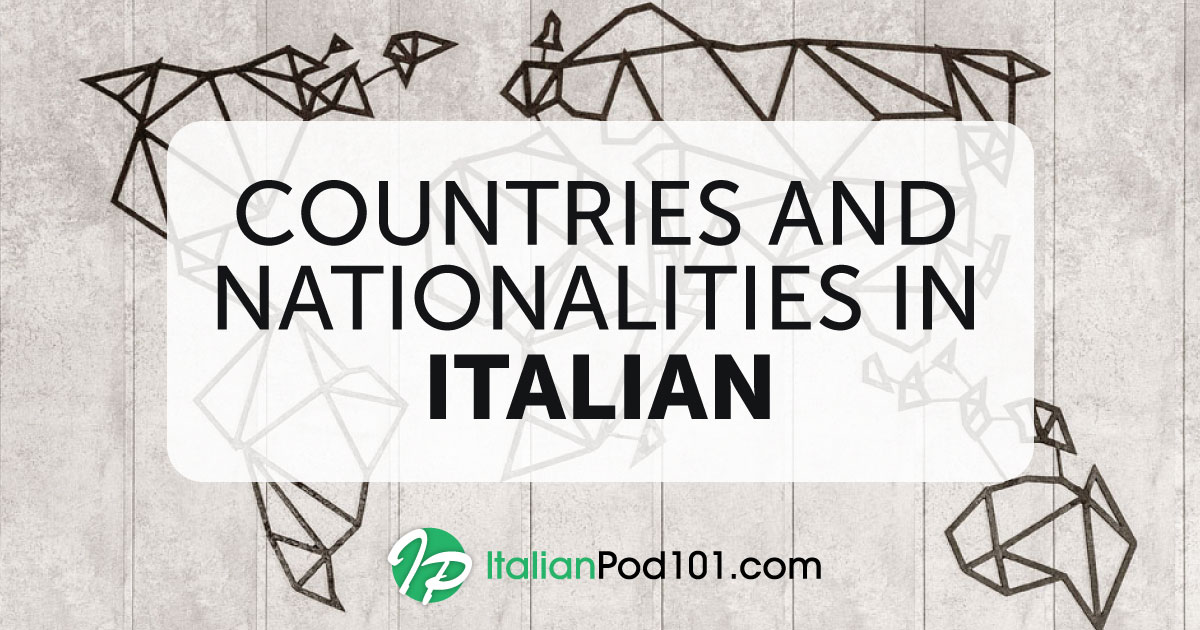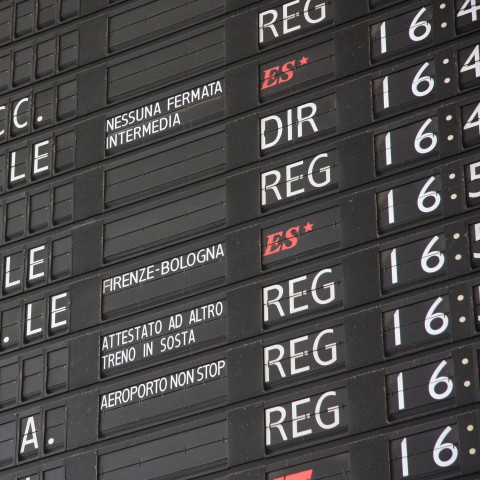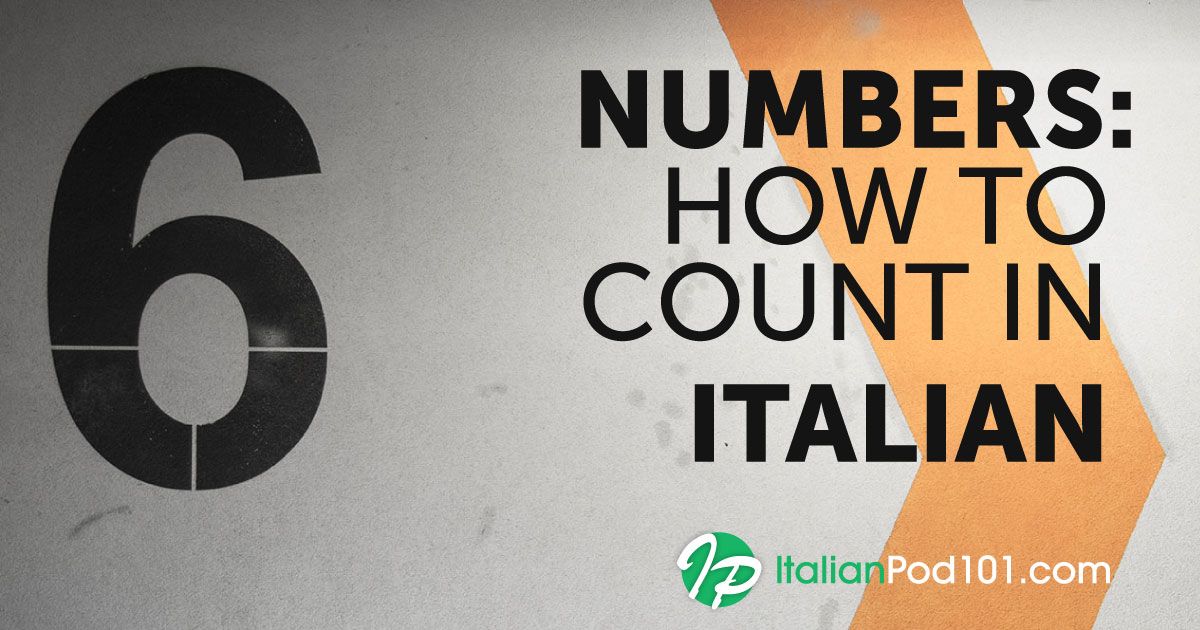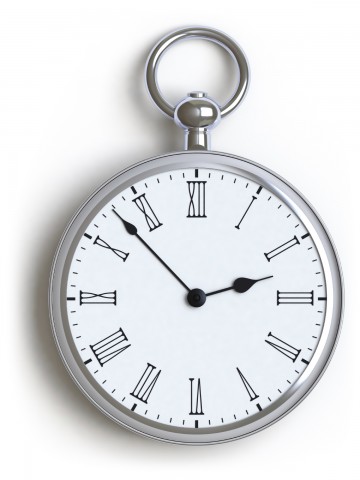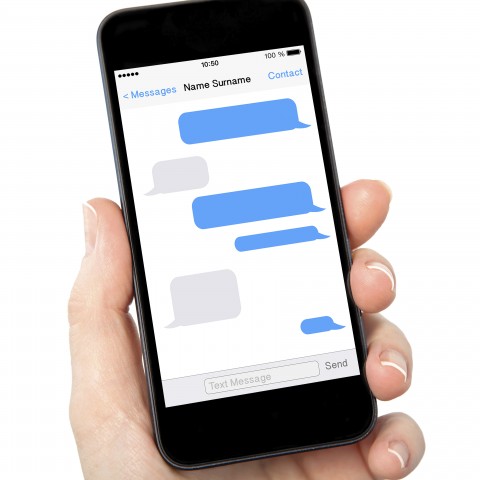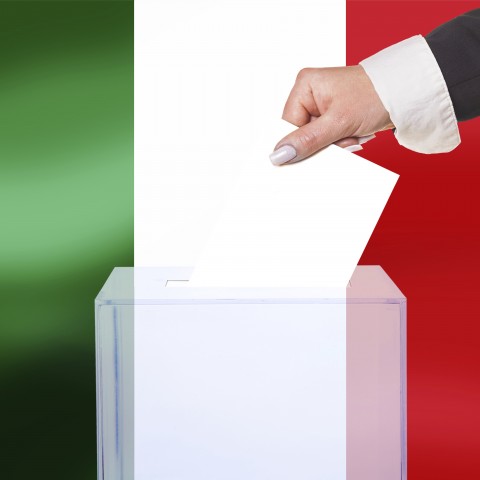
You’re learning to speak Italian, and it’s going well. Your confidence is growing! So much so that you feel ready to share your experiences on social media—in Italian.
At Learn Italian, we make this easy for you to get it right the first time. Post like a boss with these phrases and guidelines, and get to practice your Italian in the process.

1. Talking about Your Restaurant Visit in Italian
Eating out is fun, and often an experience you’d like to share. Take a pic, and start a conversation on social media in Italian. Your friend will be amazed by your language skills…and perhaps your taste in restaurants!
Matteo eats at a restaurant with his friends, posts an image of it, and leaves this comment:

POST
Let’s break down Matteo’s post.
Ottimo cibo e ottima compagnia!
“Great food and great company!”
1- Ottimo cibo
First is an expression meaning “Great food.”
This expression means that the food is extremely good. Italian adjectives change according to the noun they’re referring to. In this sentence, it takes the singular masculine form.
2- e ottima compagnia
Then comes the phrase – “and great company.”
And here you can see the feminine singular form of the adjective meaning “great.”
COMMENTS
In response, Matteo’s friends leave some comments.
1- Buon appetito!
His friend, Alice, uses an expression meaning – “Enjoy your meal!”
This is a commonly-used, well known comment, good for any post involving eating.
2- Wow, che ristorante è?
His college friend, Davide, uses an expression meaning – “Wow, which restaurant is that?”
Asking a question is a very good way to keep conversation going.
3- Salutami i tuoi amici.
His girlfriend, Giulia, uses an expression meaning – “Say hi to your friends for me.”
A friendly, warm comment!
4- Non spendere troppo!
His girlfriend’s nephew, Francesco, uses an expression meaning – “Don’t spend too much!”
Francesco is obviously the worripot or realist in the family. A friendly admonition to not overspend.
VOCABULARY
Find below the key vocabulary for this lesson:
ottimo: “great, excellent, very good”
appetito: “appetite”
ristorante: “restaurant”
amici: “friends”
spendere: “to spend”
troppo: “too much”
So, let’s practice a bit. If a friend posted something about having dinner with friends, which phrase would you use?
Now go visit an Italian restaurant, and wow the staff with your language skills!
2. Post about Your Mall Visit in Italian
Another super topic for social media is shopping—everybody does it, most everybody loves it, and your friends on social media are probably curious about your shopping sprees! Share these Italian phrases in posts when you visit a mall.
Giulia shop with her sister at the mall, posts an image of it, and leaves this comment:

POST
Let’s break down Giulia’s post.
In giro per negozi con mia sorella.
“Around the shops with my sister.”
1- In giro per negozi
First is an expression meaning “Around the shops.”
In Italian social media, it’s pretty common to omit verbs, as long as the meaning is clear. In this expression, for example, you could say both “walking around the shops,” or just “around the shops.”
2- con mia sorella
Then comes the phrase – “with my sister.”
Remember that Italian possessives must agree in number and gender with the nouns they modify. “Sister” is feminine and singular. Therefore, the possessive will also have to be feminine and singular.
COMMENTS
In response, Giulia’s friends leave some comments.
1- Adoro lo shopping.
Her high school friend, Sara, uses an expression meaning – “I love shopping!”
This is a friendly, optimistic opinion to share.
2- Fateci vedere cosa comprate!
Her friend, Alice, uses an expression meaning – “Show us what you bought!”
Alice is curious and wants more information about the shopping spree. A request like this is another excellent way to keep a thread going.
3- Buoni acquisti!
Her neighbor, Laura, uses an expression meaning – “Happy shopping!”
Laura wants to be part of the conversation and does this by wishing the shoppers well.
4- Siete bellissime, ragazze.
Her boyfriend’s college friend, Davide, uses an expression meaning – “You’re beautiful, Girls.”
Davide is appreciative of the girls’ looks and pays them a compliment with his comment. Wonder if Matteo is a jealous kind of boyfriend…?!
VOCABULARY
Find below the key vocabulary for this lesson:
negozio: “shop”
shopping: “shopping”
comprare: “to buy”
acquisto: “purchase”
bellissimo: “beautiful”
So, if a friend posted something about going shopping, which phrase would you use?
3. Talking about a Sport Day in Italian
Sports events, whether you’re the spectator or the sports person, offer fantastic opportunity for great social media posts. Learn some handy phrases and vocabulary to start a sport-on-the-beach conversation in Italian.
Matteo plays with his friends at the beach, posts an image of the game, and leaves this comment:

POST
Let’s break down Matteo’s post.
Solo una partitina a beach volley con gli amici.
“Just a round of beach volleyball with my friends.”
1- Solo una partitina
First is an expression meaning “Just a round.”
This is an informal expression meaning “match, round, game.” The Italian word used for “match” here is a modified noun. The suffix tells you that it’s something small, so you could translate it literally as “little game.” Modified nouns are very common in social media.
2- a beach volley con gli amici
Then comes the phrase – “of beach volleyball with my friends.”
In Italian, some sports keep the English names, but sometimes they are shortened. So it’s “beach volley” instead of “beach volleyball. “Another example is basketball, which in Italian is “basket.”
COMMENTS
In response, Matteo’s friends leave some comments.
1- Anch’io vorrei essere in spiaggia.
His college friend, Davide, uses an expression meaning – “I’d like to be at the beach too.”
Use this friendly comment if you wish you were part of the fun.
2- Che bella squadra!
His girlfriends’ neighbor, Laura, uses an expression meaning – “What a great team!”
Laura compliments the team.
3- Proprio come ai vecchi tempi.
His supervisor, Roberto, uses an expression meaning – “Just like (in) the old times.”
Roberto reminisces about days gone by with this nostalgic post.
4- Che fortuna!
His friend, Alice, uses an expression meaning – “Lucky you!”
Alice is also yearning to be on the beach and part of the fun, rather.
VOCABULARY
Find below the key vocabulary for this lesson:
partitina: “round”
spiaggia: “beach”
squadra: “team”
proprio: “really, actually”
tempo: “time, weather, tense”
fortuna: “luck”
Which phrase would you use if a friend posted something about sports?
But sport is not the only thing you can play! Play some music, and share it on social media.
4. Share a Song on Social Media in Italian
Music is the language of the soul, they say. So, don’t hold back—share what touches your soul with your friends!
Giulia shares a song she just heard at a party, posts an image of the artist, and leaves this comment:

POST
Let’s break down Giulia’s post.
Vi piace questa canzone?
“Do you like this song?”
1- Vi piace
First is an expression meaning “Do you like.”
This phrase literally means “it’s pleasing to you.” In Italian, the verb meaning “to like” is always in the third person (either singular or plural), as the subject is the object, not the person who likes it. You can use this phrase anytime you want to address a similar question to your friends.
2- questa canzone?
Then comes the phrase – “this song?.”
Notice how the tone of voice raises when you ask a question in Italian. The order of the words doesn’t usually change.
COMMENTS
In response, Giulia’s friends leave some comments.
1- Chi la canta?
Her boyfriend, Matteo, uses an expression meaning – “Who sings it?”
Mateo requests some more info – a good way to keep a conversation going.
2- È molto orecchiabile.
Her high school friend, Sara, uses an expression meaning – “It’s very catchy.”
Sara shares an appreciative opinion about the song.
3- Mi piace il ritmo.
Her boyfriend’s college friend, Davide, uses an expression meaning – “I like the rhythm.”
Davide does the same as Sara, which is to share a positive opinion. Both are showing that they actually listened to the song. Showing real interest in friends’ posts on social media is a great way to connect!
4- Mm, non è il mio genere.
Her nephew, Francesco, uses an expression meaning – “Mmh, it’s not my style.”
But not everyone will like your taste in music. That’s no problem, and Francesco should be commended for his honesty. His comment is respectful, even if it’s negative, so that’s OK.
VOCABULARY
Find below the key vocabulary for this lesson:
canzone: “song”
cantare: “to sing, chant”
orecchiabile: “catchy”
ritmo: “rhythm”
genere: “style”
piacere: “to like”
Which song would you share? And what would you say to a friend who posted something about sharing music or videos?
Now you know how to start a conversation about a song or a video on social media!
5. Italian Social Media Comments about a Concert
Still on the theme of music—visiting live concerts and shows just have to be shared with your friends. Here are some handy phrases and vocab to wow your followers in Italian!
Matteo goes to a concert, posts an image of it, and leaves this comment:

POST
Let’s break down Matteo’s post.
Ce l’ho fatta! Sono al concerto dei Negramaro!
“I did it! I’m at Negramaro’s concert!”
1- Ce l’ho fatta!
First is an expression meaning: “I did it!”
This is what you say when you have achieved something good.
2- Sono al concerto dei Negramaro.
Then comes the phrase – “I’m at Negramaro’s concert..”
To express possessives in Italian, you have to combine the preposition “of” and the correct definite article. This is an example of the masculine plural article.
COMMENTS
In response, Matteo’s friends leave some comments.
1- Che invidia!
His friend, Alice, uses an expression meaning – “I’m so jealous!”
Alice is showing his appreciation for what Matteo is doing and clearly wishes he was joining in the fun.
2- Come hai fatto ad avere i biglietti?
His girlfriend’s nephew, Francesco, uses an expression meaning – “How did you manage to get the tickets?”
Francesco is expressing amazement here, which could be construed in more than one way. Is he being negative and sarcastic here because he’s jealous, or positively amazed because the tickets are difficult to come by?
3- Divertiti alla grande!
His college friend, Davide, uses an expression meaning – “Have a blast!”
Davide is happy for his friend and wishes him well.
4- Grande, uno dei miei gruppi preferiti!
His girlfriend’s high school friend, Sara, uses an expression meaning – “Cool, one of my favorite groups!”
Sara shares a personal opinion that adds positively to the conversation.
VOCABULARY
Find below the key vocabulary for this lesson:
concerto: “concert”
invidia: “envy”
biglietto: “ticket, note, card, banknote”
divertirsi: “to have fun, enjoy oneself”
gruppo: “group, band”
preferito: “favorite”
If a friend posted something about a concert , which phrase would you use?
6. Talking about an Unfortunate Accident in Italian
Oh dear. You broke something by accident. Use these Italian phrases to start a thread on social media. Or maybe just to let your friends know why you are not contacting them!
Giulia accidentally breaks her mobile phone, and leaves this comment:

POST
Let’s break down Giulia’s post.
Tragedia! Ho rotto il cellulare!
“Disaster! I broke my (mobile) phone!”
1- Tragedia!
First is an expression meaning “Tragedy!.”
You can use this expression to comment on an unfortunate event. Although it literally means “tragedy,” it’s often used in a humorous or melodramatic way.
2- Ho rotto il cellulare!
Then comes the phrase – “I broke my mobile phone!.”
In this sentence the word for mobile phone literally translated means “cellular.”
COMMENTS
In response, Giulia’s friends leave some comments.
1- Com’è successo?
Her neighbor, Laura, uses an expression meaning – “How did it happen?”
Laura could be expressing warmhearted concern and asks for more details.
2- Sono cose che capitano.
Her highschool friend, Sara, uses an expression meaning – “These things happen.”
Sara takes a stoic stance on her friend’s misfortune, and plays the event down with this comment.
3- La solita sbadata!
Her nephew, Francesco, uses an expression meaning – “Careless as usual!”
Francesco sounds like a stern, pernickety old grandmother! Unless he has a fun relationship with Giulia and they tease each other this way.
4- Se vuoi ti do il mio vecchio cellulare.
Her boyfriend’s friend, Alice, uses an expression meaning – “If you want, I’ll give you my old phone.”
What a generous guy! This type of comment is sure to get you many Likes on social media.
VOCABULARY
Find below the key vocabulary for this lesson:
cellulare: “cellphone, mobile phone”
succedere: “to happen”
cosa: “thing”
sbadato: “careless”
solito: “usual, common”
vecchio: “old”
If a friend posted something about having broken something by accident, which phrase would you use?
So, now you know how to describe an accident in Italian. Well done!
7. Chat about Your Boredom on Social Media in Italian
Sometimes, we’re just bored with how life goes. And to alleviate the boredom, we write about it on social media. Add some excitement to your posts by addressing your friends and followers in Italian!
Matteo gets bored at home, and leaves this comment:

POST
Let’s break down Matteo’s post.
Gente, mi annoio a morte.
“Guys, I’m bored to death.”
1- Gente
First is an expression meaning “Guys.”
On social media, you probably have both female and male friends. Using this expression, you can address both. This colloquial expression literally means “people, folks” but here it means “guys” or “everyone.”
2- mi annoio a morte.
Then comes the phrase – “I’m bored to death..”
A more literal translation would be “I’m getting bored to death.” In Italian, the present is often used instead of the gerund to talk about things happening right now.
COMMENTS
In response, Matteo’s friends leave some comments.
1- In TV c’è un film fantastico, guardalo!
His girlfriend’s high school friend, Sara, uses an expression meaning – “There’s a great movie on TV. Watch it!”
Sara offers advice to alleviate Matteo’s boredom.
2- Perché non esci?
His supervisor, Roberto, uses an expression meaning – “Why don’t you go out?”
Roberto does the same as Sara, by asking a question.
3- Ti va di fare una passeggiata?
His girlfriend’s neighbor, Laura, uses an expression meaning – “Wanna go for a walk?”
Laura is being a friend by offering to help alleviate Matteo’s boredom. Wonder what Giulia would say about this!
4- Chattiamo!
His college friend, Davide, uses an expression meaning – “Let’s chat!”
Davide also offers to alleviate Matteo’s boredom.
VOCABULARY
Find below the key vocabulary for this lesson:
annoiarsi: “to get bored, (lit. “to bore oneself” )”
a morte: “to death”
film: “movie”
uscire: “to go out”
passeggiata: “walk, ride”
chattare: “to chat”
If a friend posted something about being bored, which phrase would you use?
Still bored? Share another feeling and see if you can start a conversation!
8. Exhausted? Share It on Social Media in Italian
Sitting in public transport after work, feeling like chatting online? Well, converse in Italian about how you feel, and let your friends join in!
Giulia feels exhausted after a long day at work, posts an image of herself looking tired, and leaves this comment:

POST
Let’s break down Giulia’s post.
Mamma mia, che stanchezza! Ho lavorato troppo!
“My goodness, so tired! I worked too much!”
1- Mamma mia, che stanchezza!
First is an expression meaning “My goodness, so tired!.”
In this sentence there is a very common expression. Literally, it means “my mom,” but you can use it to express wonder or exasperation.
2- Ho lavorato troppo!
Then comes the phrase – “I’ve worked too much!”
The verb “to work” is conjugated in a past tense that is similar to the English “present perfect,” even though it is used much more extensively in Italian. For example, you can use it to talk about what happened today, yesterday, or even last year.
COMMENTS
In response, Giulia’s friends leave some comments.
1- Vai a dormire!
Her boyfriend’s friend, Alice, uses an expression meaning – “Go to sleep!”
Alice is probably teasing here, or he’s making a good suggestion – if it’s safe to sleep on public transport!
2- Adesso cerca di riposarti.
Her boyfriend’s supervisor, Roberto, uses an expression meaning – “Now try to get some rest.”
Roberto is making a suggestion.
3- Poverina!
Her neighbor, Laura, uses an expression meaning – “Poor girl!”
Laura is showing empathy with Guilia’s predicament.
4- Buonanotte allora.
Her high school friend, Sara, uses an expression meaning – “Goodnight then.”
Sara probably implies that Guilia will be going to sleep soon.
VOCABULARY
Find below the key vocabulary for this lesson:
Mamma mia!: “My goodness!”
stanchezza: “tiredness, weariness”
dormire: “to sleep”
riposarsi: “to get rested (lit. “to rest oneself” )”
poverino!: “poor you!”
buonanotte: “goodnight”
If a friend posted something about being exhausted, which phrase would you use?
Now you know how to say you’re exhausted in Italian! Well done.
9. Talking about an Injury in Italian
So life happens, and you manage to hurt yourself during a soccer game. Very Tweet-worthy! Here’s how to do it in Italian.
Matteo suffers a painful injury, posts an image of it, and leaves this comment:

POST
Let’s break down Matteo’s post.
Mi sono fatto male al ginocchio giocando a calcio.
“I hurt my knee playing football.”
1- Mi sono fatto male al ginocchio
First is an expression meaning “I hurt my knee.”
Use this expression to say that you suffered an injury. You can substitute the word for “knee” with another noun to indicate some other part of the body.
2- giocando a calcio
Then comes the phrase – “playing football.”
The gerund is used to explain how it happened, pretty much like in English.
COMMENTS
In response, Matteo’s friends leave some comments.
1- Sei andato dal medico?
His girlfriend’s neighbor, Laura, uses an expression meaning – “Have you been to the doctor?”
Laura shows concern for Matteo’s wellbeing, and keeps the conversation going with a question.
2- È rotto?
His college friend, Davide, uses an expression meaning – “Is it broken?”
Davide also wants more information – all ways to express concern.
3- Immagino sia molto doloroso.
His supervisor, Roberto, uses an expression meaning – “I suppose it’s very painful.”
Roberto is making conversation, but this is also a way of showing concern.
4- Fatti forza!
His friend, Alice, uses an expression meaning – “Hang in there!”
Alice chooses to encourage his friend with this comment.
VOCABULARY
Find below the key vocabulary for this lesson:
ginocchio: “knee”
medico: “doctor”
rotto: “broken”
immaginare: “to imagine”
doloroso: “painful”
Fatti forza!: “Hang in there!”
If a friend posted something about being injured, which phrase would you use?
We love to share our fortunes and misfortunes; somehow that makes us feel connected to others.
10. Starting a Conversation Feeling Disappointed in Italian
Sometimes things don’t go the way we planned. Share your disappointment about this with your friends!
Giulia feels disappointed about today’s weather, posts an image of it, and leaves this comment:

POST
Let’s break down Giulia’s post.
Uffa, piove!
“Ugh, it’s raining!”
1- Uffa
First is an expression meaning “Ugh.”
This is a colloquial expression you can use when something doesn’t go the way you hoped, and you’re disappointed.
2- piove
Then comes the phrase – “it’s raining.”
This is called an impersonal verb, and it doesn’t have a subject. The verb follows the third person singular. Lots of impersonal verbs are used to talk about weather conditions.
COMMENTS
In response, Giulia’s friends leave some comments.
1- Già, che peccato.
Her boyfriend’s friend, Alice, uses an expression meaning – “Yeah, what a pity.”
Alice seems to feel somewhat sorry for Giulia.
2- Odio questo tempo.
Her boyfriend’s college friend, Davide, uses an expression meaning – “I hate this weather.”
Davide feels very strong about this type of weather!
3- Che sfortuna.
Her neighbor, Laura, uses an expression meaning – “Too bad.”
Laura is making conversation with this short but slightly sympathetic comment.
4- Speriamo che smetta.
Her high school friend, Sara, uses an expression meaning – “Let’s hope it stops.”
Sara shares an optimistic wish.
VOCABULARY
Find below the key vocabulary for this lesson:
piovere: “to rain”
peccato: “too bad”
odiare: “to hate, to loathe, to detest”
tempo: “weather”
sfortuna: “bad luck”
smettere: “to stop”
How would you comment in Italian when a friend is disappointed?
Not all posts need to be about a negative feeling, though!
11. Talking about Your Relationship Status in Italian
Don’t just change your relationship status in Settings, talk about it!
Matteo changes his status to “In a relationship”, posts an image of himself and Giulia, and leaves this comment:

POST
Let’s break down Matteo’s post.
Vi presento la mia ragazza.
“Introducing, my girlfriend.”
1- Vi presento
First is an expression meaning “Introducing.”
In English, the pronoun “you” can be both singular and plural. In Italian, on the other hand, there are two different pronouns. In this expression, the meaning is “introducing to you (plural).”
2- la mia ragazza
Then comes the phrase – “my girlfriend.”
In English, you can’t use the article before a possessive, but in Italian you usually have to. So here we have article + possessive + noun.
COMMENTS
In response, Matteo’s friends leave some comments.
1- Che bella coppia!
His college friend, Davide, uses an expression meaning – “What a lovely couple!”
A sweet comment from a good friend, Davide obviously feels good about this match.
2- Era ora…
His girlfriend’s nephew, Francesco, uses an expression meaning – “About time…”
Francesco is either perpetually in a sour mood, or he’s using negative teasing to be playful with the couple.
3- Io invece sono ancora single!
His friend, Alice, uses an expression meaning – “I’m still single, though!”
Alice is sorry about his own predicament.
4- Siete carini insieme.
His girlfriend’s neighbor, Laura, uses an expression meaning – “You’re cute together.”
Laura is also appreciative of the match.
VOCABULARY
Find below the key vocabulary for this lesson:
ragazza: “girlfriend”
coppia: “couple, pair”
ora: “time, hour”
single: “single”
carino: “cute”
insieme: “together”
What would you say in Italian when a friend changes their relationship status?
Being in a good relationship with someone special is good news – don’t be shy to spread it!
12. Post about Getting Married in Italian
Wow, so things got serious, and you’re getting married. Congratulations! Or, your friend is getting married, so talk about this in Italian.
Giulia is getting married to Matteo today, so she eaves this comment:

POST
Let’s break down Giulia’s post.
Oggi è il gran giorno, mi sposo!
“Today’s the big day. I’m getting married!”
1- Oggi è il gran giorno
First is an expression meaning “Today is the big day.”
This is what you say when it’s an important occasion, such as your wedding day.
2- mi sposo!
Then comes the phrase – “I’m getting married!.”
The verb “to get married” in Italian is reflexive, meaning that the subject carries out the action on itself. The short word in front of the verb is called a reflexive pronoun, and it changes based on the subject.
COMMENTS
In response, Giulia’s friends leave some comments.
1- Congratulazioni!
Her high school friend, Sara, uses an expression meaning – “Congratulations!”
Use this expression to show you are feeling optimistic.
2- Evviva gli sposi!
Her boyfriend’s friend, Alice, uses an expression meaning – “Long live the newlyweds!”
Alice is feeling optimistic and generous about this big event, and wishes the couple a long life together with this comment.
3- Tantissimi auguri per il vostro matrimonio!
Her supervisor, Roberto, uses an expression meaning – “Best wishes on your wedding day!”
An old-fashioned well wish that is still commonly in use.
4- Sarai una sposa bellissima.
Her neighbor, Laura, uses an expression meaning – “You’re going to be a beautiful bride.”
Laura is warmhearted and complimentary towards Giulia with this comment.
VOCABULARY
Find below the key vocabulary for this lesson:
sposarsi: “to get married (lit. to marry oneself)”
Congratulazioni!: “Congratulations!”
evviva!: “Hooray!”
sposo: “groom”
matrimonio: “marriage, holy matrimony, wedding”
sposa: “bride”
How would you respond in Italian to a friend’s post about getting married?
For the next topic, fast forward about a year into the future after the marriage…
13. Announcing Big News in Italian
Wow, huge stuff is happening in your life! Announce it in Italian.
Matteo finds out he and his wife are going to have a baby, posts an image of it, and leaves this comment:

POST
Let’s break down Matteo’s post.
Sto per diventare papà, fatemi gli auguri!
“I’m going to be a dad, wish me luck!”
1- Sto per diventare papà
First is an expression meaning “I’m going to be a dad.”
The verb construction in this phrase is used to express something that is about to happen, usually in the near future.
2- fatemi gli auguri!
Then comes the phrase – “wish me luck!.”
This expression is commonly used before facing an important situation, such as a test or, as in this example, the arrival of a child.
COMMENTS
In response, Matteo’s friends leave some comments.
1- Buona fortuna, preparati alle notti in bianco!
His wife’s nephew, Francesco, uses an expression meaning – “Good luck, get ready for all-nighters!”
Use this expression to show you are feeling cynical.
2- È una meravigliosa notizia, auguri.
His supervisor, Roberto, uses an expression meaning – “That’s wonderful news, best wishes.”
This is a positive reaction to the news, together with a short well-wish.
3- Sono felicissima per voi!
His neighbor, Laura, uses an expression meaning – “I’m so happy for you!”
Laura shares her positive feelings about the newcomer with this comment.
4- È un maschietto o una femminuccia?
His friend, Alice, uses an expression meaning – “Is it a boy or a girl?”
Alice is curious about the baby’s gender and asks a question – a good way to keep the conversation going.
VOCABULARY
Find below the key vocabulary for this lesson:
papà: “dad”
notte in bianco: “sleepless night”
notizia: “a piece of news, news”
felice: “happy, glad, joyful”
maschietto: “baby boy”
femminuccia: “baby girl”
Which phrase would you choose when a friend announces their pregnancy on social media?
So, talking about a pregnancy will get you a lot of traction on social media. But wait till you see the responses to babies!
14. Posting Italian Comments about Your Baby
Your bundle of joy is here, and you cannot keep quiet about it! Share your thoughts in Italian.
Giulia plays with her baby, posts an image of it, and leaves this comment:

POST
Let’s break down Giulia’s post.
Guardate che sorriso. Amore di mamma!
“Look at that smile. Sweetheart!”
1- Guardate che sorriso.
First is an expression meaning “Look at that smile..”
The verb “look” here is in the second person plural of the imperative form. Literally this sentence is “Look what a smile.”
2- Amore di mamma!
Then comes the phrase – “Sweetheart!.”
This expression literally means “mom’s love,” but the meaning is “sweetheart, sweetie.” You can change the word for “mom” with others, such as “dad,” “aunt,” or “grandma,” depending on your relationship with the child.
COMMENTS
In response, Giulia’s friends leave some comments.
1- Ma che carina!
Her boyfriend’s college friend, Davide, uses an expression meaning – “She’s so cute!”
This is a positive observation from Davide about the baby.
2- È tale e quale a te!
Her boyfriend’s friend, Alice, uses an expression meaning – “She’s your spitting image!”
Alice sees similarities between Giulia and her baby, and shares that friendly opinion.
3- Dalle un bacetto per me!
Her high school friend, Sara, uses an expression meaning – “Give her a peck for me!”
Sara is feeling loving towards Giulia’s baby and obviously wants to kiss it.
4- Davvero adorabile!
Her neighbor, Laura, uses an expression meaning – “Really adorable!”
This is a warm-hearted, common compliment usually reserved for babies of all kinds!
VOCABULARY
Find below the key vocabulary for this lesson:
sorriso: “smile”
amore di mamma: “sweetheart”
tale e quale: “spitting image”
bacetto: “peck”
adorabile: “adorable”
davvero: “really, truly, indeed”
If your friend is a new mother or father, which phrase would you use on social media?
Congratulations, you know the basics of chatting about a baby in Italian! But we’re not done with families yet…
15. Italian Comments about a Family Reunion
Family reunions – some you love, some you hate. Share about it on your feed.
Matteo goes to a family gathering, posts an image of it, and leaves this comment:

POST
Let’s break down Matteo’s post.
Pranzo della domenica dai miei.
“Sunday lunch at my folks’ place.”
1- Pranzo della domenica
First is an expression meaning “Sunday lunch.”
Many Italians visit their mothers on Sunday, and they have a big lunch, usually consisting of traditional, homemade dishes, with all the family.
2- dai miei
Then comes the phrase – “at my folks’ place.”
This is a very common expression. It literally means “at mine’s.” Even though “folk’s place” is omitted, Italians understand that you’re referring to your parents.
COMMENTS
In response, Matteo’s friends leave some comments.
1- La cucina della mamma è sempre la migliore!
His friend, Alice, uses an expression meaning – “Mom’s cooking is always the best!”
Alice shares a universal truth about most mother’s cooking skills.
2- Wow, quanti siete!
His college friend, Davide, uses an expression meaning – “Wow, so many of you!”
Davide is making a friendly, personal observation to be part of the conversation.
3- Auguro una buona domenica a tutti voi.
His supervisor, Roberto, uses an expression meaning – “I wish you all a good Sunday.”
Roberto is a bit more old-fashioned in the way he expresses himself, but this well-wish works just fine.
4- È bello stare in famiglia.
His neighbor, Laura, uses an expression meaning – “It’s nice to be with family.”
Laura makes a general observation that is positive and warmhearted.
VOCABULARY
Find below the key vocabulary for this lesson:
pranzo: “lunch”
i miei: “my parents”
cucina: “kitchen, cooking, food, cuisine”
domenica: “Sunday”
famiglia: “family”
stare: “to be, to stand, to lie, to be located, to be situated”
Which phrase is your favorite to comment on a friend’s photo about a family reunion?
16. Post about Your Travel Plans in Italian
So, the family is going on holiday. Do you know to post and leave comments in Italian about being at the airport, waiting for a flight?
Giulia waits at the airport for her flight, posts an image of it, and leaves this comment:

POST
Let’s break down Giulia’s post.
In partenza, ma il mio volo è in ritardo…
“I’m leaving, but my flight is delayed…”
1- In partenza
First is an expression meaning “I’m leaving.”
In English you need a verb, such as “leaving” or “departing,” but in Italian you can use the word for “departure,” which is a noun.
2- ma il mio volo è in ritardo
Then comes the phrase – “but my flight is delayed.”
Delays in public transportation are not uncommon in Italy. The word “flight” can be changed, for example, with “bus” or “train.”
COMMENTS
In response, Giulia’s friends leave some comments.
1- Buon viaggio!
Her high school friend, Sara, uses an expression meaning – “Have a nice trip!”
Using a very common expression, Sara wishes her friend well with the trip.
2- Facci sapere quando arrivi.
Her neighbor, Laura, uses an expression meaning – “Let us know once you’ve arrived.”
Laura is showing some concern here for Giulia’s travel plans.
3- Tienici aggiornati!
Her boyfriend’s friend, Alice, uses an expression meaning – “Keep us updated!”
Alice also wants to be reassured that all goes well, therefore he asks for an update.
4- Ritardi…Sai che novità.
Her nephew, Francesco, uses an expression meaning – “Delays… That’s nothing new.”
Francesco is being cynical again…
VOCABULARY
Find below the key vocabulary for this lesson:
volo: “flight”
ritardo: “delay, lateness”
aggiornato: “updated”
viaggio: “trip”
aggiornato: “updated”
novità: “newness, something new”
Choose and memorize your best airport phrase in Italian!
Hopefully the rest of the trip is better!
17. Posting about an Interesting Find in Italian
So maybe you’re strolling around at a local market during the holidays, and find something interesting. Here are some handy Italian phrases!
Matteo finds an unusual item at a local market, posts an image of it, and leaves this comment:

POST
Let’s break down Matteo’s post.
Guardate qua. Secondo voi cos’è?
“Look at this. What do you think it is?”
1- Guardate qua.
First is an expression meaning “Look at this..”
This literally means “look here.” It’s a more generic expression than “look at this,” since you don’t have to specify the number or gender of the thing you’re talking about.
2- Secondo voi cos’è?
Then comes the phrase – “What do you think it is?.”
Use this phrase to ask for somebody’s opinion. In this example the person is “you” plural, but you can change that to “you” singular, or even “they.”
COMMENTS
In response, Matteo’s friends leave some comments.
1- Dove l’hai trovato?
His college friend, Davide, uses an expression meaning – “Where did you find it?”
Davide wants more information, so he asks this question to keep Matteo engaged.
2- È un reperto alieno, ovviamente!
His friend, Alice, uses an expression meaning – “It’s an alien artifact, of course!”
Alice is joking around a bit with his friend.
3- Spero solo che non sia il mio regalo di compleanno.
His wife’s nephew, Francesco, uses an expression meaning – “I just hope it’s not my birthday gift.”
As said – either Francesco is as positive and pleasant as a wet rag, or this is his way of bantering with family.
4- Potrebbe trattarsi di un oggetto antico.
His supervisor, Roberto, uses an expression meaning – “It might be an antique.”
Roberto is the only one who ventures a serious opinion about the nature of the item.
VOCABULARY
Find below the key vocabulary for this lesson:
guardare: “to look, to watch”
trovare: “to find”
reperto: “find, archeological find”
alieno: “alien”
regalo: “present, gift”
oggetto antico: “antique”
Which phrase would you use to comment on a friend’s interesting find?
Perhaps you will even learn the identity of your find! Or perhaps you’re on holiday, and visiting interesting places…
18. Post about a Sightseeing Trip in Italian
Let your friends know what you’re up to in Italian, especially when visiting a remarkable place! Don’t forget the photo.
Giulia visits a famous landmark, posts an image of it, and leaves this comment:

POST
Let’s break down Giulia’s post.
Saluti da questa stupenda città d’arte!
“Greetings from this wonderful city of art!”
1- Saluti da
First is an expression meaning “Greetings from.”
Italians often use this expression on postcards and social media to say where they are.
2- questa stupenda città d’arte!
Then comes the phrase – “this wonderful city of art!.”
The expression “city of art” refers to cities with lots of famous monuments and museums, such as Rome, Venice, Florence, and many others. Italians love to visit such cities on long weekends or in the summer.
COMMENTS
In response, Giulia’s friends leave some comments.
1- Mandami una cartolina!
Her husband’s college friend, Davide, uses an expression meaning – “Send me a postcard!”
Davide seems happy for Giulia and wants to have a momento too.
2- La prossima volta ci andiamo insieme!
Her high school friend, Sara, uses an expression meaning – “Next time, let’s go there together!”
Sara expresses a wish to visit this place with her friend.
3- Troppi turisti per i miei gusti.
Her nephew, Francesco, uses an expression meaning – “Too many tourists for my liking.”
Yea, trust Francesco to criticize the place.
4- Aspettiamo tante foto!
Her husband’s friend, Alice, uses an expression meaning – “We expect lots of photos!”
Alice wants to also experience this via photos.
VOCABULARY
Find below the key vocabulary for this lesson:
città d’arte: “city of art”
mandare: “to send”
cartolina: “postcard”
insieme: “together”
turista: “tourist”
foto: “photo, picture”
Which phrase would you prefer when a friend posts about a famous landmark?
Share your special places with the world. Or simply post about your relaxing experiences.
19. Post about Relaxing Somewhere in Italian
So you’re doing nothing yet you enjoy that too? Tell your social media friends about it in Italian!
Matteo relaxes at a beautiful place, posts an image of it, and leaves this comment:

POST
Let’s break down Matteo’s post.
Sole, mare e un po’ di meritato relax.
“Sun, sea, and some well-deserved relaxation.”
1- Sole, mare
First is an expression meaning “Sun, sea.”
Thanks to the hot summers and amazing beaches, the seaside is the most popular destination among Italian people.
2- e un po’ di meritato relax.
Then comes the phrase – “and some well-deserved relaxation..”
This phrase is used to express that you have been working hard and now you can spend some time just relaxing.
COMMENTS
In response, Matteo’s friends leave some comments.
1- Insomma, sei in paradiso!
His college friend, Davide, uses an expression meaning – “In short, you’re in heaven!”
Davide clearly thinks Matteo is in an enviable place.
2- Metti la crema solare!
Their neighbor, Laura, uses an expression meaning – “Put on your sunscreen!”
Laura is acting a bit like a mother.
3- Scottature, meduse… Non ti invidio.
His wife’s nephew, Francesco, uses an expression meaning – “Sunburns, jellyfish… I don’t envy you.”
Francesco needs to be negative and different from all the others, it seems!
4- Facciamo cambio?
His friend, Alice, uses an expression meaning – “Wanna swap places?”
Alice is clearly wishing he was sharing in the fun.
VOCABULARY
Find below the key vocabulary for this lesson:
sole: “sun”
mare: “sea”
relax: “relaxation”
paradiso: “paradise”
crema solare: “sunblock, sun cream”
scottatura: “sunburn”
medusa: “jellyfish”
invidiare: “to envy”
Which phrase would you use to comment on a friend’s feed?
The break was great, but now it’s time to return home.
20. What to Say in Italian When You’re Home Again
And you’re back! What will you share with friends and followers?
Giulia returns home after a vacation, posts an image of it, and leaves this comment:

POST
Let’s break down Giulia’s post.
Eccomi qui, sono a casa!
“Here I am, I’m home!”
1- Eccomi qui
First is an expression meaning “Here I am.”
Say this whenever you arrive at a place where someone is waiting for you. For example, on a date, or on social media when you’ve been away for a while.
2- sono a casa!
Then comes the phrase – “I’m home!.”
In Italian, you always have to use a preposition before “home”.
COMMENTS
In response, Giulia’s friends leave some comments.
1- Bentornata!
Their neighbor, Laura, uses an expression meaning – “Welcome back!”
A commonly-used, warmhearted comment.
2- Ci sei mancata!
Her high school friend, Sara, uses an expression meaning – “We missed you!”
This is a friendly sentiment to share, showing friends that they are valuable.
3- Usciamo per un caffè così mi racconti tutto!
Her husband’s friend, Alice, uses an expression meaning – “Let’s go out for a coffee so you can tell me everything!”
Alice would love to hear firsthand from the family how their holiday went.
4- Dov’è il mio souvenir?
Her husband’s college friend, Davide, uses an expression meaning – “Where’s my souvenir?”
Davide is making a fun, playful comment, probably hoping they did get him a souvenir!
VOCABULARY
Find below the key vocabulary for this lesson:
casa: “home, house, one’s place”
bentornato: “welcome back”
mancare: “to be lacking, missing”
caffè: “coffee, espresso”
uscire: “to go out”
raccontare: “to tell, recount”
tutto: “everything, all”
souvenir: “souvenir”
How would you welcome a friend back from a trip?
What do you post on social media during a public commemoration day such as the Assumption of the Virgin Mary in Italy?
21. It’s Time to Celebrate in Italian
It’s an historic day and you wish to post something about it on social media. What would you say?
Matteo celebrates the Assumption of the Virgin Mary, posts an image of this event, and leaves this comment:

POST
Let’s break down Matteo’s post.
A Ferragosto, niente di meglio di una grigliata in montagna!
“On August 15th, (there’s) nothing better than a barbecue in the mountains!”
1- A Ferragosto
First is an expression meaning “On August 15th.”
“Ferragosto” is an Italian holiday on the 15th of August celebrating the Assumption of the Virgin Mary. Most businesses are closed on this day.
2- niente di meglio di una grigliata in montagna!
Then comes the phrase – “nothing better than a barbecue in the mountains!.”
Mid-August is when most people are on summer vacation. On this day, it’s traditional to go on a trip to the beach or to the mountains, and enjoy some food with family and friends.
COMMENTS
In response, Matteo’s friends leave some comments.
1- Buon Ferragosto!
His supervisor, Roberto, uses an expression meaning – “Happy 15th of August!”
Roberto uses a common expression suitable for this day.
2- Come fa a piacerti la montagna? Meglio il mare!
His wife’s nephew, Francesco, uses an expression meaning – “How can you like the mountains? The sea is better!”
Francesco is being his negative, critical self again, it seems!
3- Salsicce! Gnam!
His friend, Alice, uses an expression meaning – “Sausages! Yum!”
Alice is commenting on the food, and clearly likes what he sees.
4- Puoi dirlo forte!
His college friend, Davide, uses an expression meaning – “That’s right!”
Davide simply agrees with Matteo here, a suitable comment for this thread.
VOCABULARY
Find below the key vocabulary for this lesson:
grigliata: “barbeque”
montagna: “mountain”
ferragosto: “August 15th”
salsiccia: “sausage”
forte: “strong, powerful, loud, tough, heavy, severe”
gnam: “yum”
If a friend posted something about a holiday, which phrase would you use?
Assumption of the Virgin Mary and other public commemoration days are not the only special ones to remember!
22. Posting about a Birthday on Social Media in Italian
Your friend or you are celebrating your birthday in an unexpected way. Be sure to share this on social media!
Giulia goes to her birthday party, posts an image of it, and leaves this comment:

POST
Let’s break down Giulia’s post.
Grazie a tutti per la meravigliosa festa!
“Thank you all for the wonderful party!”
1- Grazie a tutti
First is an expression meaning “Thank you all.”
When you want to express your gratitude to a group of people for something, use this expression.
2- per la meravigliosa festa!
Then comes the phrase – “for the wonderful party!.”
The phrase that follows “for” is the thing you’re grateful for.
COMMENTS
In response, Giulia’s friends leave some comments.
1- Buon compleanno!
Her husband’s college friend, Davide, uses an expression meaning – “Happy birthday!”
THe universal wish on a person’s birthday is suitable here.
2- Ce l’hai fatta a spegnere tutte le candeline?
Her husband’s friend, Alice, uses an expression meaning – “Did you manage to blow out all the candles?”
Alice is asking a playful question to remain part of the conversation.
3- Giornata super!
Her high school friend, Sara, uses an expression meaning – “Fabulous day!”
This could be a wish or a comment on Giulia’s post.
4- La torta era deliziosa.
Her neighbor, Laura, uses an expression meaning – “The cake was delicious.”
Laura was also there, obviously, and confirms Giulia’s post.
VOCABULARY
Find below the key vocabulary for this lesson:
festa: “feast, holiday, party”
compleanno: “birthday”
candelina: “candle”
super: “fabulous”
torta: “cake, tart, pie”
delizioso: “delightful, delicious”
If a friend posted something about birthday greetings, which phrase would you use?
23. Talking about New Year on Social Media in Italian
Impress your friend with your Italian New Year’s wishes this year. Learn the phrases easily!
Matteo celebrates the New Year, posts an image of it, and leaves this comment:

POST
Let’s break down Matteo’s post.
Buon anno a tutti!
“Happy New Year, everyone!”
1- Buon anno
First is an expression meaning “Happy New Year.”
This is the most common way to wish a happy New Year. In Italy, people say “happy New Year” even later on in January, when they meet someone again for the first time that year.
2- a tutti
Then comes the phrase – “everyone!.”
On social media, use this expression to address wishes, such as “happy new year” or “merry christmas,” to everyone.
COMMENTS
In response, Matteo’s friends leave some comments.
1- Felice anno nuovo!
His neighbor, Laura, uses an expression meaning – “Happy New Year!”
This is the universal, commonly-used wish for New Year almost everywhere in the world. Suitable for this occasion too.
2- Che il nuovo anno sia migliore di quello vecchio!
His wife’s high school friend, Sara, uses an expression meaning – “May the new year be better than the last!”
This is a sweet, optimistic wish that can be used anywhere with anyone on New Year.
3- Cin cin!
His friend, Alice, uses an expression meaning – “Cheers!”
Alice is short and sweet, saying thank you for Matteo’s wish.
4- Hai già fatto i buoni propositi?
His college friend, Davide, uses an expression meaning – “Have you already made any good resolutions?”
Davide asks a question, perhaps to keep the conversation going.
VOCABULARY
Find below the key vocabulary for this lesson:
anno: “year”
felice: “happy, glad, joyful”
migliore: “better”
vecchio: “old”
cin cin: “cheers”
proposito: “resolution”
Which is your favorite phrase to post on social media during New Year?
But before New Year’s Day comes another important day…
24. What to Post on Christmas Day in Italian
What will you say in Italian about Christmas?
Giulia celebrates Christmas with her family, posts an image of it, and leaves this comment:

POST
Let’s break down Giulia’s post.
Buon Natale a tutti, vi auguro di festeggiare con i vostri cari!
“Merry Christmas, everyone, may you celebrate with your loved ones!”
1- Buon Natale a tutti
First is an expression meaning “Merry Christmas, everyone.”
This is the traditional phrase to wish everyone a merry Christmas, both in person and on social media.
2- vi auguro di festeggiare con i vostri cari!
Then comes the phrase – “may you celebrate with your loved ones!.”
In Italy, Christmas is the most important family holiday of the year. Christmas Eve, however, is a working day for many people. But businesses usually close early to allow people to enjoy Christmas Eve supper with their families, and they remain closed until the 26th, which is also a holiday.
COMMENTS
In response, Giulia’s friends leave some comments.
1- Non vedo l’ora di aprire i regali!
Her husband’s college friend, Davide, uses an expression meaning – “I can’t wait to open my presents!”
Frivolous Davide allows his inner child to be excited about the prospect of Christmas gifts.
2- Auguro un sereno Natale a te e alla tua famiglia.
Her supervisor, Roberto, uses an expression meaning – “I wish a merry Christmas to you and your family.”
A traditional Christmas wish, suitable for this time of year.
3- Andateci piano col panettone!
Her husband’s friend, Alice, uses an expression meaning – “Take it easy on the panettone!”
Alice gives advice light-heartedly. Panettone is a traditional sweet bread loaf commonly enjoyed on this day in Italy.
4- Odio le feste, svegliatemi quando sono finite…
Her nephew, Francesco, uses an expression meaning – “I hate the holidays, wake me up when it’s all over…”
Poor, pessimistic Francesco seems to be having a difficult time.
VOCABULARY
Find below the key vocabulary for this lesson:
Natale: “Christmas”
festeggiare: “to celebrate”
caro: “loved one”
panettone: “panettone (sweet bread)”
svegliare: “to wake up”
If a friend posted something about Christmas greetings, which phrase would you use?
So, the festive season is over! Yet, there will always be other days, besides a birthday, to wish someone well.
25. Post about Your Anniversary in Italian
Some things deserve to be celebrated, like wedding anniversaries. Learn which Italian phrases are meaningful and best suited for this purpose!
Matteo celebrates his wedding anniversary with his wife, posts an image of it, and leaves this comment:

POST
Let’s break down Matteo’s post.
Un altro anno insieme. Grazie amore!
“Another year together. Thank you, my love!”
1- Un altro anno insieme.
First is an expression meaning “Another year together..”
In Italy, couples usually do something special for their anniversary. For example, they go out to dinner or on a romantic date, and they exchange presents.
2- Grazie amore!
Then comes the phrase – “Thank you, my love!.”
The Italian word for “love” is masculine, but you can use it to refer to your partner, as well.
COMMENTS
In response, Matteo’s friends leave some comments.
1- Buon anniversario, ti amo!
His wife, Giulia, uses an expression meaning – “Happy anniversary, I love you!”
The couple clearly likes to show their affection online. This is a traditional, sweet wish suitable for the occasion.
2- Auguri ragazzi, vi auguro molti altri anni felici.
His neighbor, Laura, uses an expression meaning – “Congratulations guys, I wish you many other years of happiness.”
Laura is being warmhearted and positive with this well-wish for the couple.
3- Un brindisi per voi!
His college friend, Davide, uses an expression meaning – “A toast to you!”
Davide also makes a short but meaningful and positive comment, toasting the couple’s marriage. A toast traditionally both celebrates an occasion, and signifies good wishes.
4- Vi auguro di essere sempre felici come il primo giorno.
His supervisor, Roberto, uses an expression meaning – “May you always be as happy as the first day.”
What a sweet, positive wish for any marriage!
VOCABULARY
Find below the key vocabulary for this lesson:
amore: “love”
anniversario: “anniversary”
augurare: “to wish, bid, hope”
amare: “to love”
brindisi: “toast”
giorno: “day”
If a friend posted something about Anniversary greetings, which phrase would you use?
Conclusion
Learning to speak a new language will always be easier once you know key phrases that everybody uses. These would include commonly used expressions for congratulations and best wishes, etc.
Master these in fun ways with Learn Italian! We offer a variety of tools to individualize your learning experience, including using cell phone apps, audiobooks, iBooks and many more. Never wonder again what to say on social media!













